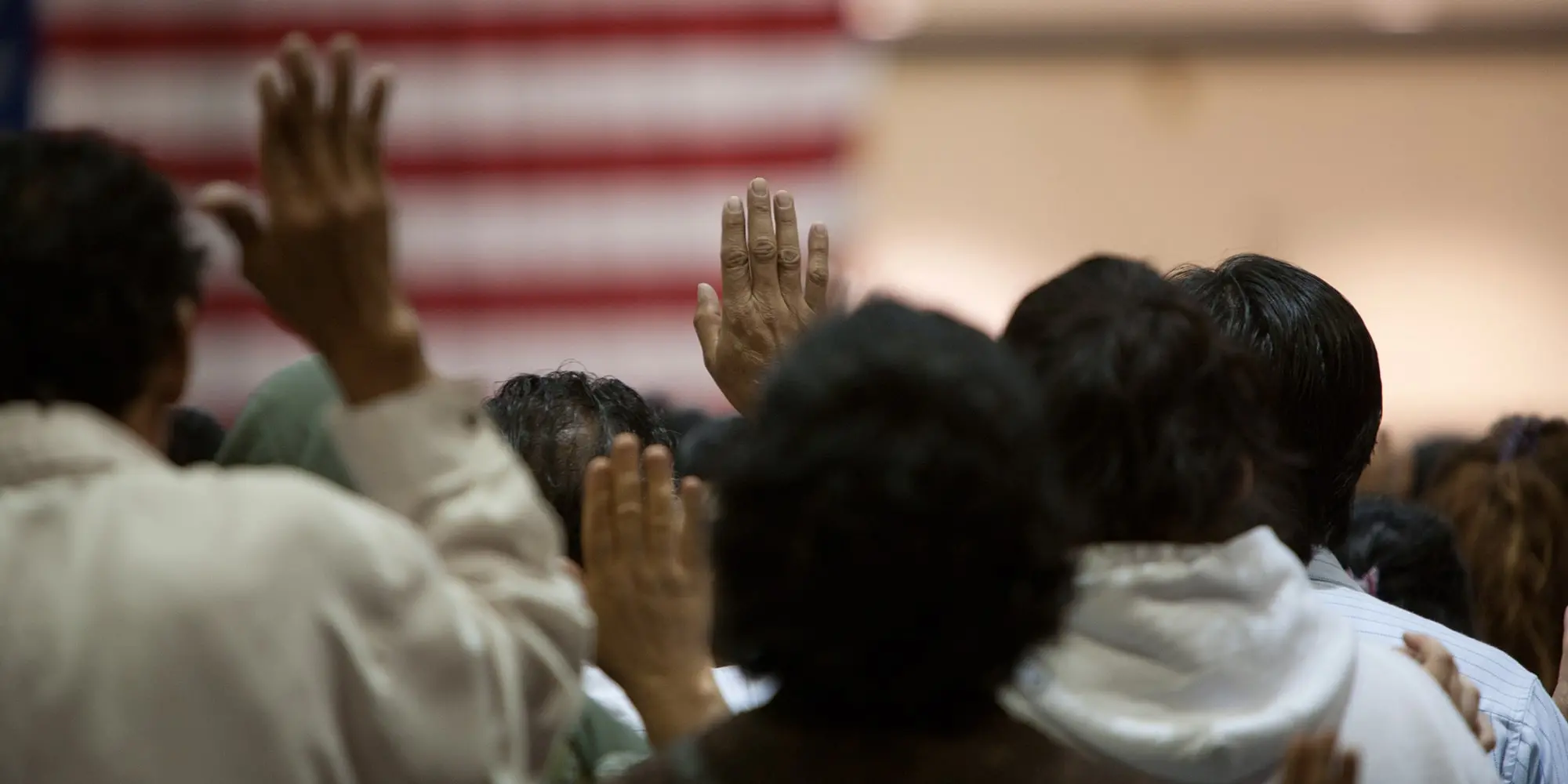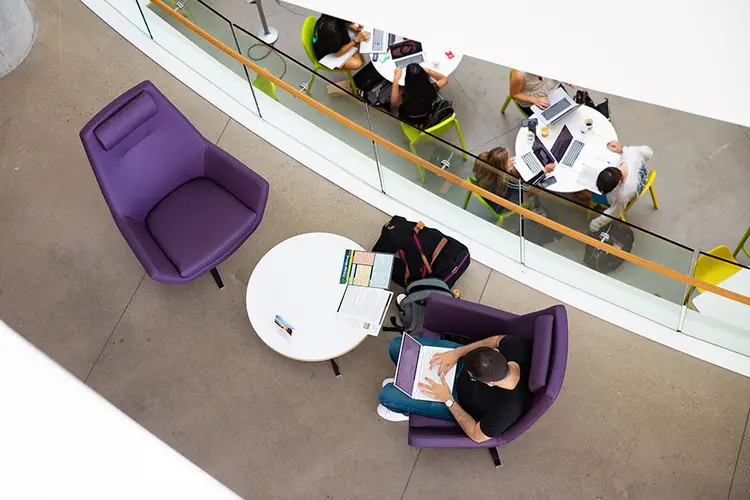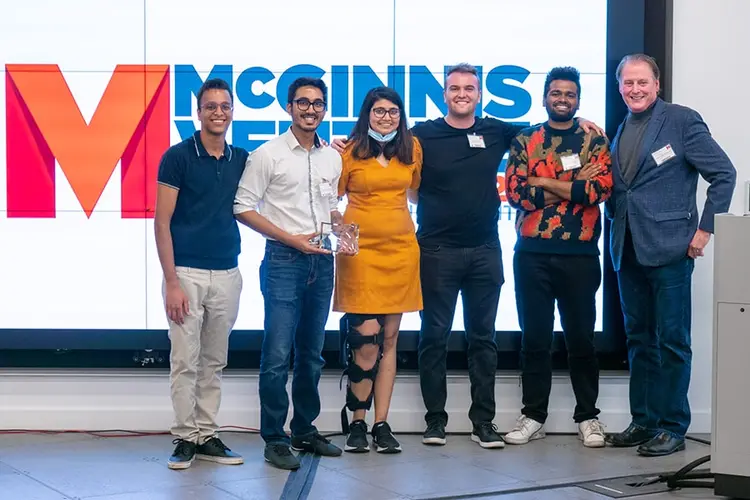
Lessem Studies Policy Effects on Immigrants’ Economic Outcomes
Media Inquiries
In many nations today, opportunities, income, wealth and resources are unequally distributed among people. Inclusive economic growth, which creates employment opportunities and helps decrease poverty, requires that countries choose policies that boost access to productive jobs, skills training, education and health care for people from all backgrounds.
In her exploration of issues around immigration,�Rebecca Lessem, an associate professor of economics(opens in new window), seeks to understand the impacts of policy on individuals' decisions and outcomes. Lessem's work is closely tied to the goals of the Tepper Inclusive Growth and Prosperity Initiative.
A Global View of Growth and Inequality
"The goal of the initiative is to focus on growth and inequality," said Lessem. "To do that, it is important to take a global view. In my areas of study, I'm not just thinking about workers in the United States, but also considering workers in Mexico and other countries, where there are vast earnings differences as compared to the U.S."
Lessem considers immigration an obvious avenue for people living outside the U.S. to address this inequality; however, policies restrict many people from having this option. Her research focuses on how individuals decide whether to immigrate.
Among the questions she asks:
- How can immigration be used to increase individuals' earnings?
- What policies influence individuals' decisions to move?
- How do immigrants fare once they are in the United States?
"We tend to see a dropoff in the skill composition of jobs once immigrants move to the U.S. as compared to their jobs at home," Lessem said. "Many come here to increase wage opportunities, and it's important to understand how they move through different jobs during their time here."
In one study, published in the Review of Economic Studies, Lessem examined how differences in wages and U.S. border enforcement policy would affect the decisions of Mexican immigrants coming to the United States. She used data from the Mexican Migration Project (a dataset of Princeton University and the University of Guadalajara) of adults immigrating legally and illegally from Mexico to the United States between 1980 and 2004. Her model focused on individuals' choices and considered expected wages and the cost of moving to the destination, as well as the location of individuals' spouses.
Based on a sample of nearly 6,500 individuals, Lessem found that a 10% increase in Mexican wages would reduce rates of migration to and stays in the United States, decreasing the average number of years Mexican immigrants spent in the United States by about 5%. A 50% increase in border enforcement would reduce the amount of time individuals spent in the United States by about 3%; if the same increase in enforcement were allocated along the border in a way that minimized immigration rates, the number of years the average person in the study lived in the United States would drop by about 7%.
Based on her findings, Lessem suggests that increases in expenditures on border enforcement and in Mexican wages would reduce illegal immigration. However, she explains that the simulations involve large spending increases for a relatively small impact on immigration, suggesting that the effect on behavior seems mild.
Examining Policies That Reduce Barriers to Occupational Mobility
In another study, conducted with Carl Sanders of Indiana University and published in the International Economic Review, Lessem evaluated the benefits (for earnings and occupational attainment) for legal U.S. immigrants of policies that facilitate entry into jobs at their skill levels and reduce barriers to occupational mobility. To do this, Lessem and Sanders constructed a model of occupational search and estimated it using labor market and demographic data from the New Immigrant Survey, a program that did in-person surveys of a random sample of immigrants granted U.S. legal permanent resident status between May and November 2003.
The study found that occupational mobility is an important component of immigrants' wage growth, but it identified only small average wage gains from policies that reduce remaining occupational frictions. The findings suggest that eliminating barriers to occupational entry would lead to only a small increase in earnings for the average immigrant, but a substantial increase in earnings for the most highly skilled immigrants.
Based on the study, Lessem suggests that policies that aim to help immigrants return to the jobs they held in their native countries would have a significant impact only for high-skilled immigrants who already have the easiest time in the U.S. labor market. Rather than policies that try to help immigrants find the right jobs, policies focused on increasing the skills of low-skilled immigrants may have better distributional consequences.
"These are hotly debated issues," Lessem said. "This is why the type and style of research being done at Tepper is so important. We don't just look at the data, policy and outcomes; we construct models to understand the mechanisms underlying individuals' decision-making and behavior. This helps us to learn the indirect and direct effects of policies to understand the broader impacts.
"In so doing, we are trying to inform better policies and provide information that policymakers should know about and consider when developing and implementing policies," she added. "It is crucial to think about these issues, which affect individuals' daily lives as well as the day-to-day workings of the economy."
How Race and Gender Affect How People Search for Jobs
Next, Lessem will work with Robert Miller, Richard M. Cyert and Morris DeGroot Professor of Economics and Statistics, on a study of how race and gender affect how people search for jobs and how firms select new hires.
"Our goal is to determine how the search and matching process varies across race and gender, in part to help understand wage inequality between men and women and across racial groups," Lessem said. "Our overall goal is to understand how job finding rates contribute to the changes in gender and racial wage gaps over the course of a worker's career."
In addition to immigration, Lessem is studying the effects of family structure on children. Using a data set of only urban areas (i.e., a lower-income population), where many of the children's parents are not married at birth, she and her colleagues are analyzing how family structure affects the academic, physical and mental health outcomes of young children.
"Our preliminary results show that family structure matters far less than mothers' labor-market status and that children of nonworking moms do better than children of working moms, generally speaking," said Lessem.
"Moving forward, we hope to use these results to gain a better understanding of child development to help uncover the determinants of the persistence of intergenerational inequality."
Rebecca Lessem
Related
Mexico-U.S. Immigration: Effects of Wages and Border Enforcement(opens in new window)�by Rebecca Lessem, published in the Review of Economic Studies
Immigrant Wage Growth in the United States: The Role of Occupational Upgrading(opens in new window) by Rebecca Lessem and Carl Sanders, published in the International Economic Review


